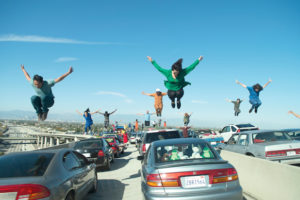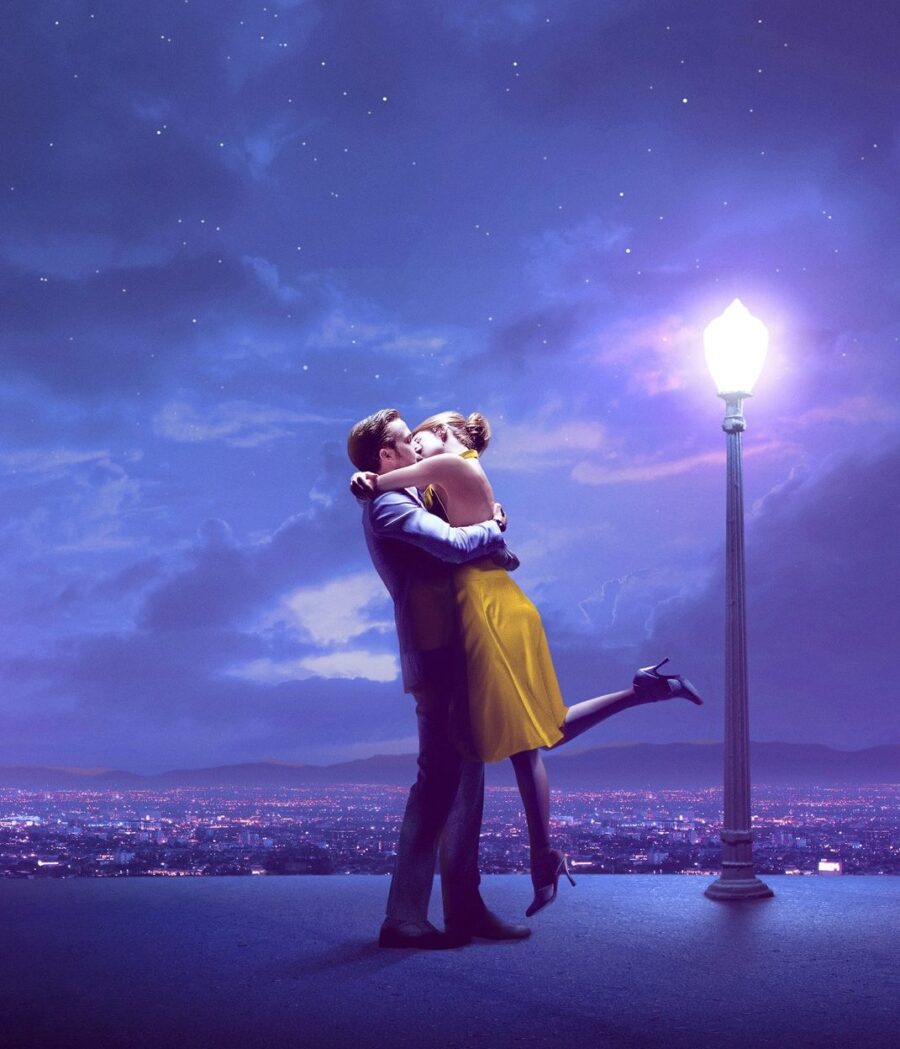La La Land has landed a historic fourteen Academy Award nominations and if the past is any indication, it may win all of them outside of the acting categories given Hollywood’s adoration for movies about movies (remember when the Academy lost its mind over The Artist, a movie that honestly nobody talks about anymore?). Its place as the darling movie of the moment is certainly well-deserved. Ryan Gosling & Emma Stone are emerging as our generation’s Tom Hanks & Meg Ryan (though not quite Hepburn & Tracy). Damien Chazelle’s vibrant storytelling is matched only by the energy of his camerawork (alongside Linus Sandgren). It is in every sense a visual marvel bursting with bright colors, dazzling song and dance, and an unapologetic exuberance for big dreams. The enduring charm of the movie for me is how it loves two of my own loves: (1) Los Angeles (Watts Towers never looked so good) and (2) movies themselves (this clip below captures many references, misses many more, including Vertigo’s green light).
My problems with the film are minor. The music is serviceable, but not memorable. A.O. Scott says it right: “You’re more likely to remember what you saw than what you heard.” It is also obvious that Gosling and Stone cannot hold a candle to Rogers & Astaire or Gene Kelly and the late Debbie Reynolds (I wonder if Chazelle secretly wanted trained triple-threats and the studios pushed back with A-List “stars” instead. Chazelle deserves credit for not pushing this musical throwback the way Chicago tried to painfully convince us that Richard Gere and Renée Zellwegger could really, no really, sing and dance). For what it’s worth, I think a recent film that credibly nods to the genre of old Hollywood with not only the required irony, but the required chops is Hail Caesar! But this all borders on undue criticism. Obviously, I can do no better. Perhaps I’m just jealous that Ryan Gosling learned his bits on the piano in just three months (God isn’t fair sometimes).

Hang on, I’m sure if I squint just right, that might be a person of color on the left?
Obligatory Spoiler Alert Below (Seriously, just go see it):
The Obvious Comparisons
The comparisons to (500) Days of Summer are evident to many. Both films effect a vintage, Instamatic wash over a bohemian (though conspicuously Caucasian) Los Angeles. Both divide itself along the seasons of the year. Both involve eminently likable couples who just can’t make it work in the end. Although come to think of it, if anybody plays the archetype of Zooey’s ‘manic pixie dream girl’ in La La Land, wouldn’t we have to say it’s Gosling?
However, the real comparison with La La Land needs to be Chazelle’s previously acclaimed film, Whiplash, since in both films, the same polarizing dilemma is pressed for all its worth :: the pursuit of greatness and the promise of love — ambition versus family. Mia (Stone) dreams of becoming a Hollywood actress. Seb (Gosling) dreams of owning his own jazz nightclub. Both appear to be in love with each other, but when it comes down to it, it is somehow clear to both that they must choose between one or the other (the why or how they must choose either career or love is, as was the case in Whiplash, more assumed than actually explained).
So What Do These People Actually Want?
Anne-Marie Slaughter, among a host of others, has famously struggled with the admission that “No, women can’t have it all” when it comes to career and family. It would appear Ryan Gosling’s character here chimes in with a sympathetic, “I hear you, sister” (the memes of Feminist Ryan Gosling immediately come to mind, no?).

But Ryan Gosling’s “Seb” has his own slant on the problem of “having it all.” Everything works on his terms. He is poor, yes, but only because as a “pure jazz musician” (in the manner of an Ayn Rand-ian tortured artist), he refuses to sell out as a commercial artist playing Christmas tunes and electronic-infused music. If he dreams of a successful nightclub, there are no real hindrances there and the movie doesn’t even need to explore this. Reaching his goal is as easy as perfecting a descending, Mixolydian jazz scale in three short months of practice (seriously, I’m not bitter). In the iconic scene of him walking alone emo-esque along Hermosa Beach pier, he sings “City of Stars, are you shining just for me?” which is a pretty self-involved question to ask, unless, of course, you look like Ryan Gosling with his music skills to boot — the world simply opens up differently for someone like him than it does the rest of us. Confession of immaturity: I was a little comforted when I heard Gosling sing (maybe God is a little fair after all).
The relative ease in which Seb can attain his dream goals in five years makes the “dilemma” of the film all the more inscrutable. Why won’t he just go to Paris with Mia as he envisions at the end? Why can’t he find fulfillment in a relationship while also pursue his career ambitions? But even more confounding, what does he actually want? When both Mia and Seb express their dreams, their own future together has no part in their telling. But in City of Stars, Seb sings:
City of stars
Just one thing everybody wants
There in the bars
And through the smokescreen of the crowded restaurants
It’s love
Yes, all we’re looking for is love from someone else
And yet. Clearly against what he sings, he chooses his own nightclub. Mia chooses the role of a lifetime in Paris on her way to stardom (and eventually a family, marrying that one curly-haired guy from That Thing You Do). How this is not a false dilemma is completely lost on me, but maybe I’m too old to understand.
The Nod
Both Whiplash and La La Land end the same way. The Nod. We might be on the cusp of a Chazelle-Nod in the same way we have a Kubrick-Stare. I can’t find a GIF of the respective nods online, but it looks a bit like the nod of Robert Redford meme fame.
In the astonishing final scene of Whiplash, the cruel J.K. Simmons (who gives nothing affirming as a Teacher except abuse the entire movie) finally recognizes the hero’s “greatness” on the drums, and quietly nods at the film’s close. The nod suggests at least in part, “You did it. Welcome to the fraternity of greatness.” Similarly, Mia and Seb, having reached their “dreams” (club ownership and stardom), now quite apart from each other, share “the nod” together.
In Chazelle’s universe, it seems you can only be great in your career or you can sacrifice those dreams of greatness for the promise (however unsteady) of love. He may, in the end, be right. Speaking personally, as a family man and an ethnic minority, I have not really even considered the possibilities of personal greatness and fame over against a family with the one I love (and recognizing my own privilege and blessing beyond what I deserve, I would unflinchingly choose my wife and family over anything else I can possibly dream). This may ultimately be the reason I cannot connect at all with Chazelle’s conundrum. Again, to Chazelle’s credit, he leaves these questions ever open. Seb may secretly sing about wanting the love of someone else, but he chooses (perhaps rightly) to be great at what he does. What he’s left with is simply the nod — the nod that appears to validate the choices he and Mia have made and the sacrifices taken to get to their dreams. And yet.



Leave a Reply
Your email is safe with us.